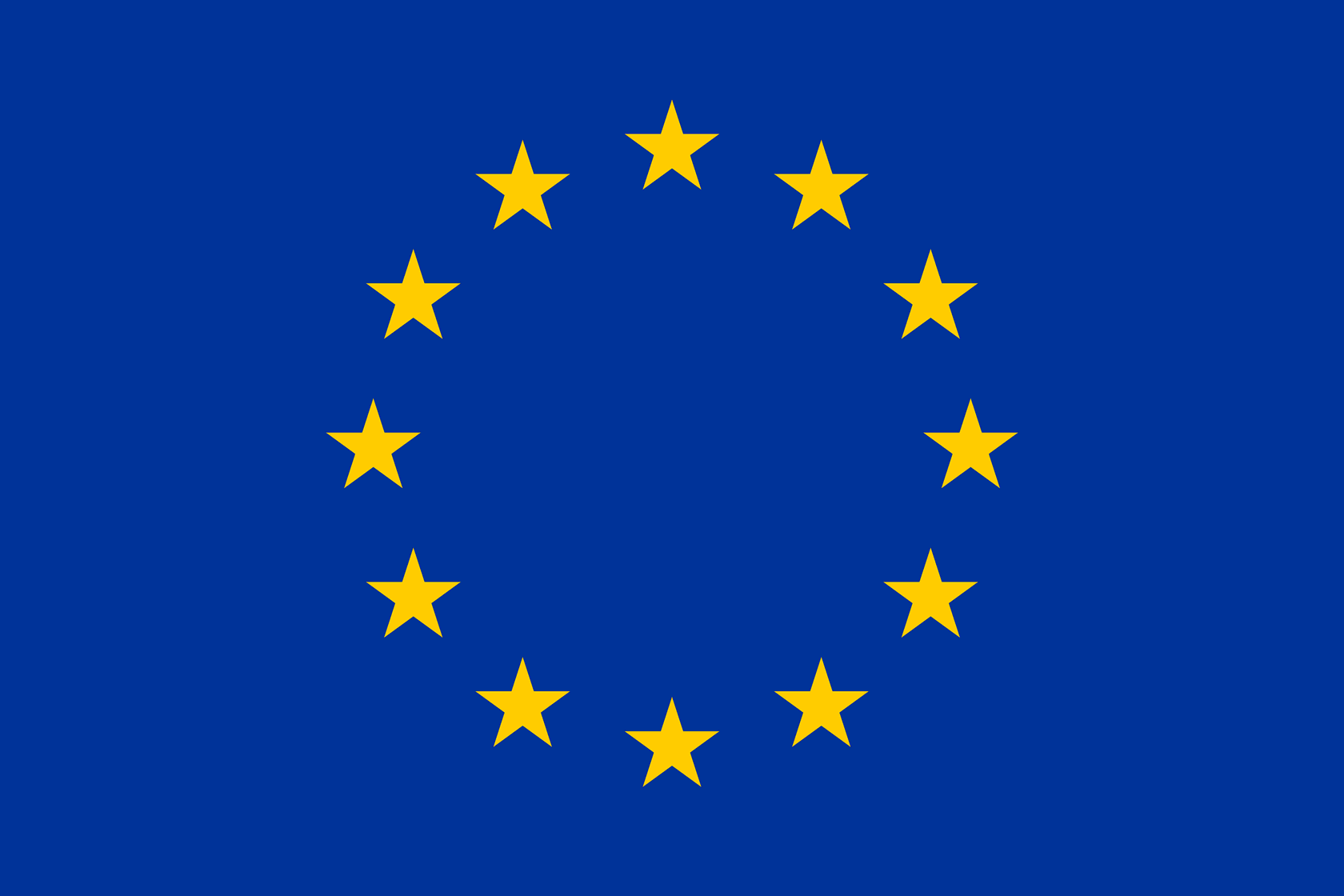Last week, the ReROOT Toolkit team and site researcher Charalampos Tsavdaroglou (Thessaloniki) attended the 2024 addition of the Royal Geographical Society annual conference to share recent findings from the ReROOT Project.
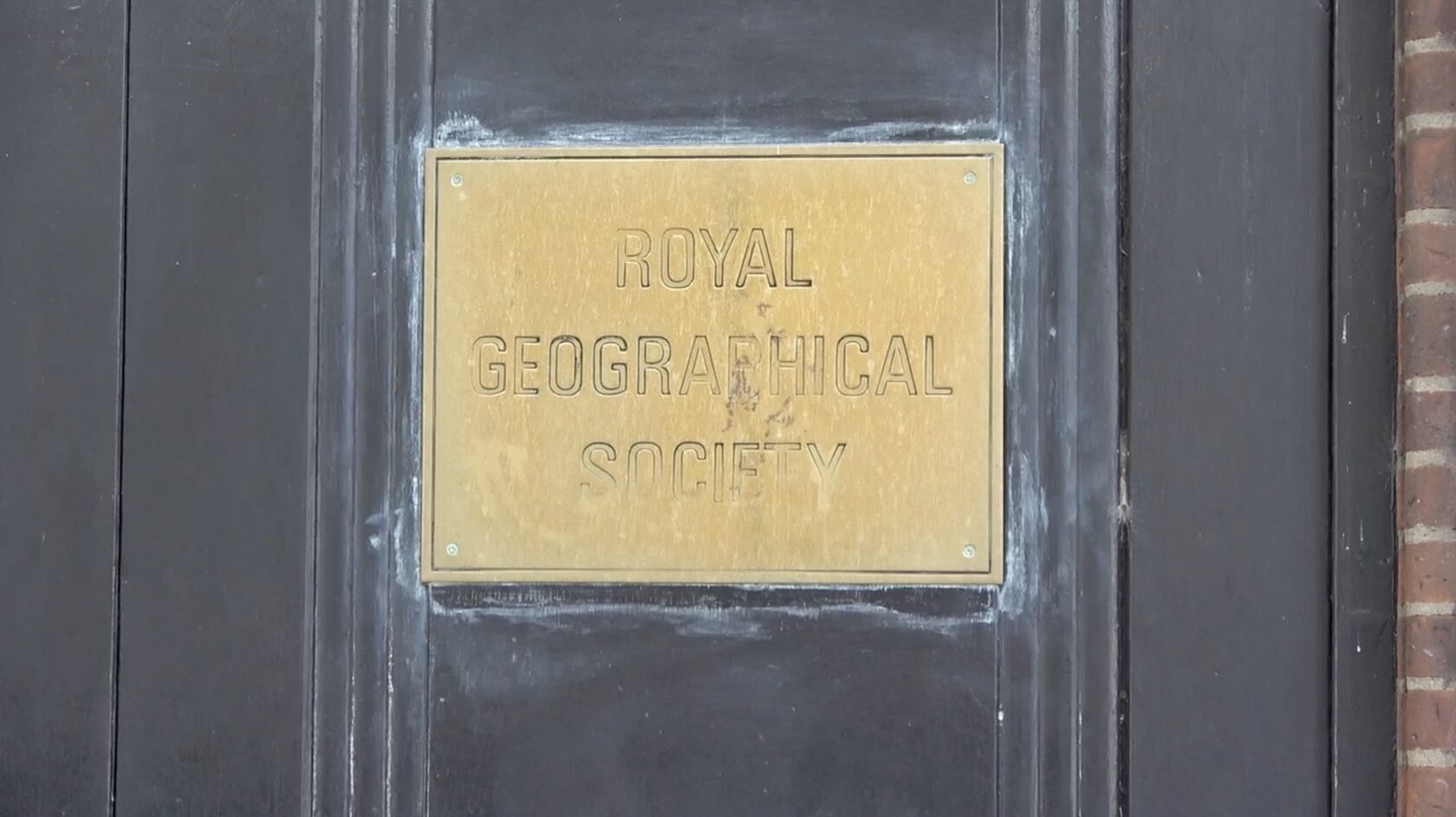
ReROOTers convened in London after following various lines of flight over and under land and sea – journeys all marked by periods of protracted waiting, queueing, and border regimes.
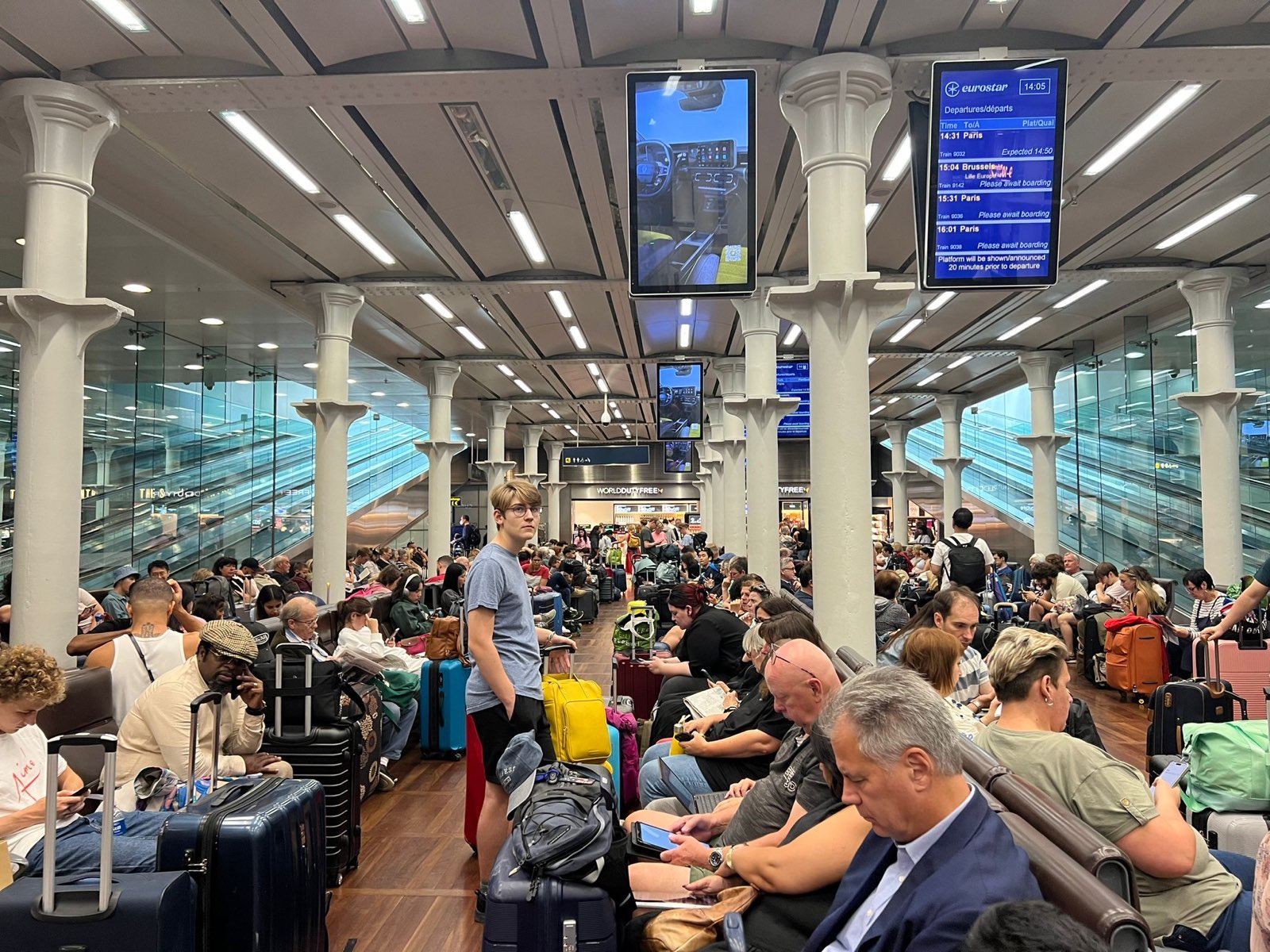
Waiting to arrive. Foto by Luce Beeckmans.
The theme of this year's Royal Geographical Society was "Mapping". We heard various takes on the concept of mapping which inspired us to continue our efforts of "counter-mapping" and using ethnographic and spatial data to intervene in and reflect upon contemporary regimes of diversity and mobility.
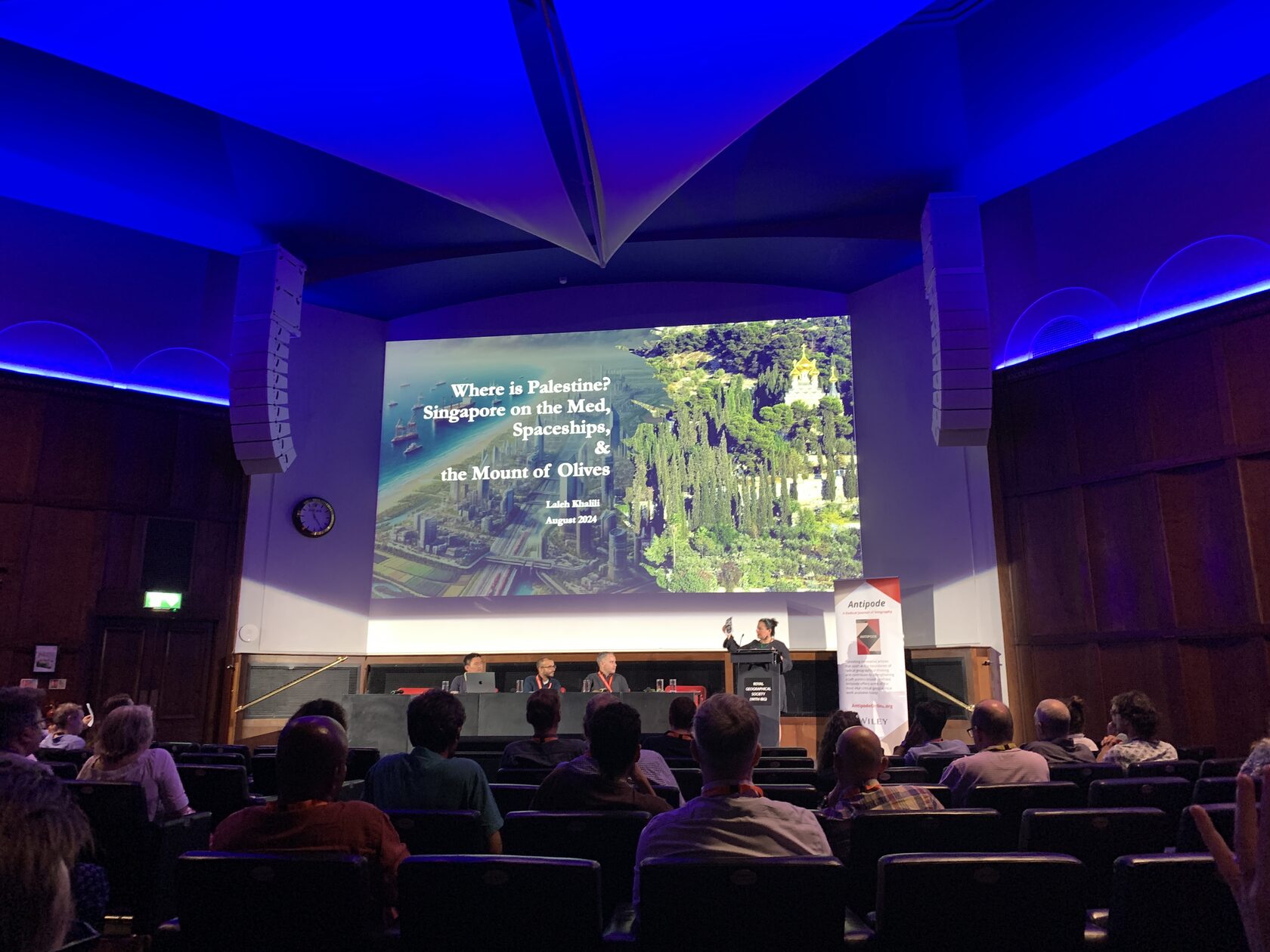
The Antipode Keynote lecture featured Laleh Khalili who asked the vital question "Where is Palestine?", drawing our attention to the presence/absence of Palestine in the conference, in maps, and in public debate. We were asked to think about the historical complicity of institutions such as the Royal Geographical Society in rendering Palestine visible and the role of mapping in settler colonial and genocidal practices.
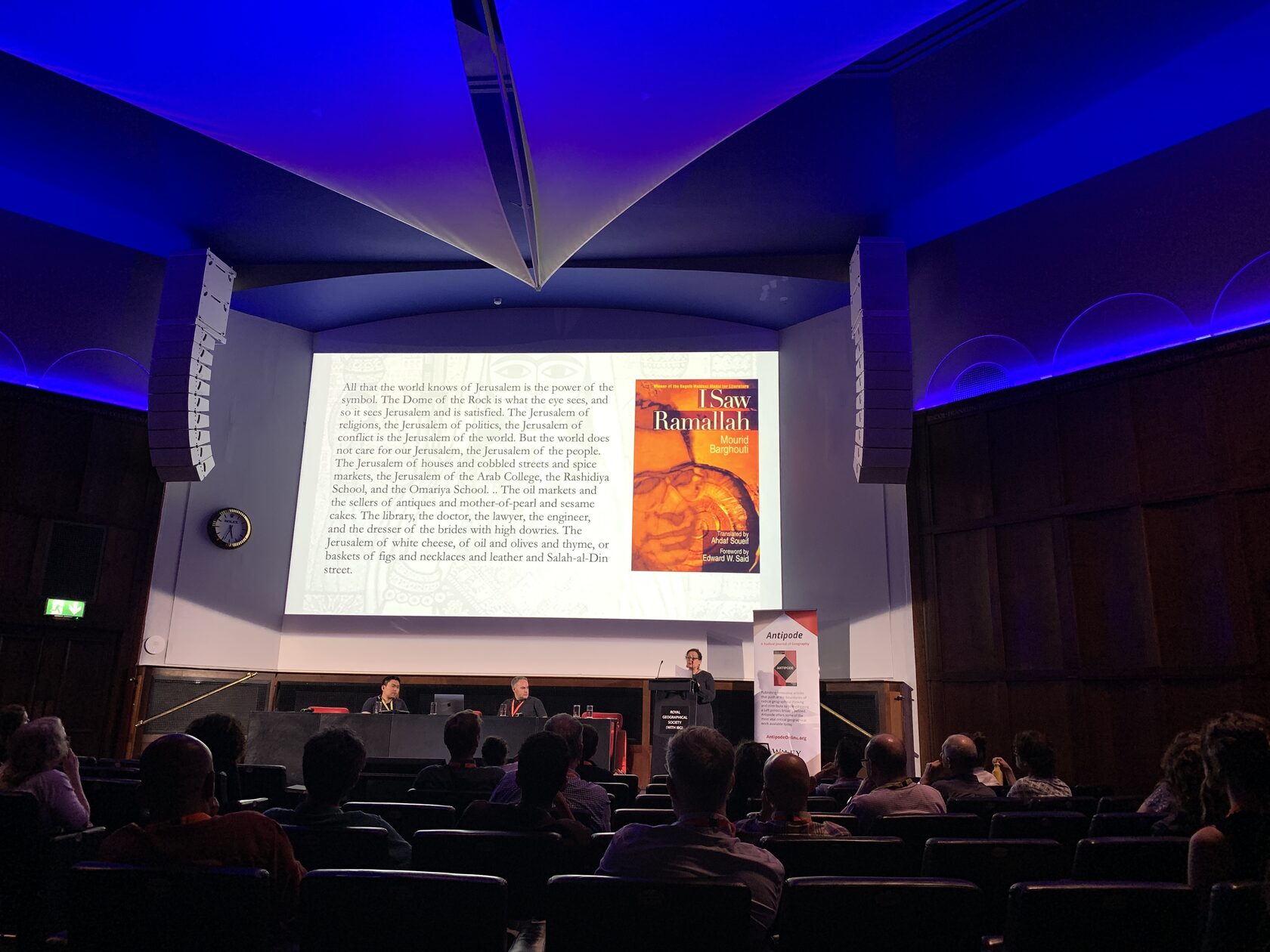
Khalili shared representations of Palestine as brought to life by Palestinian artists and thinkers.
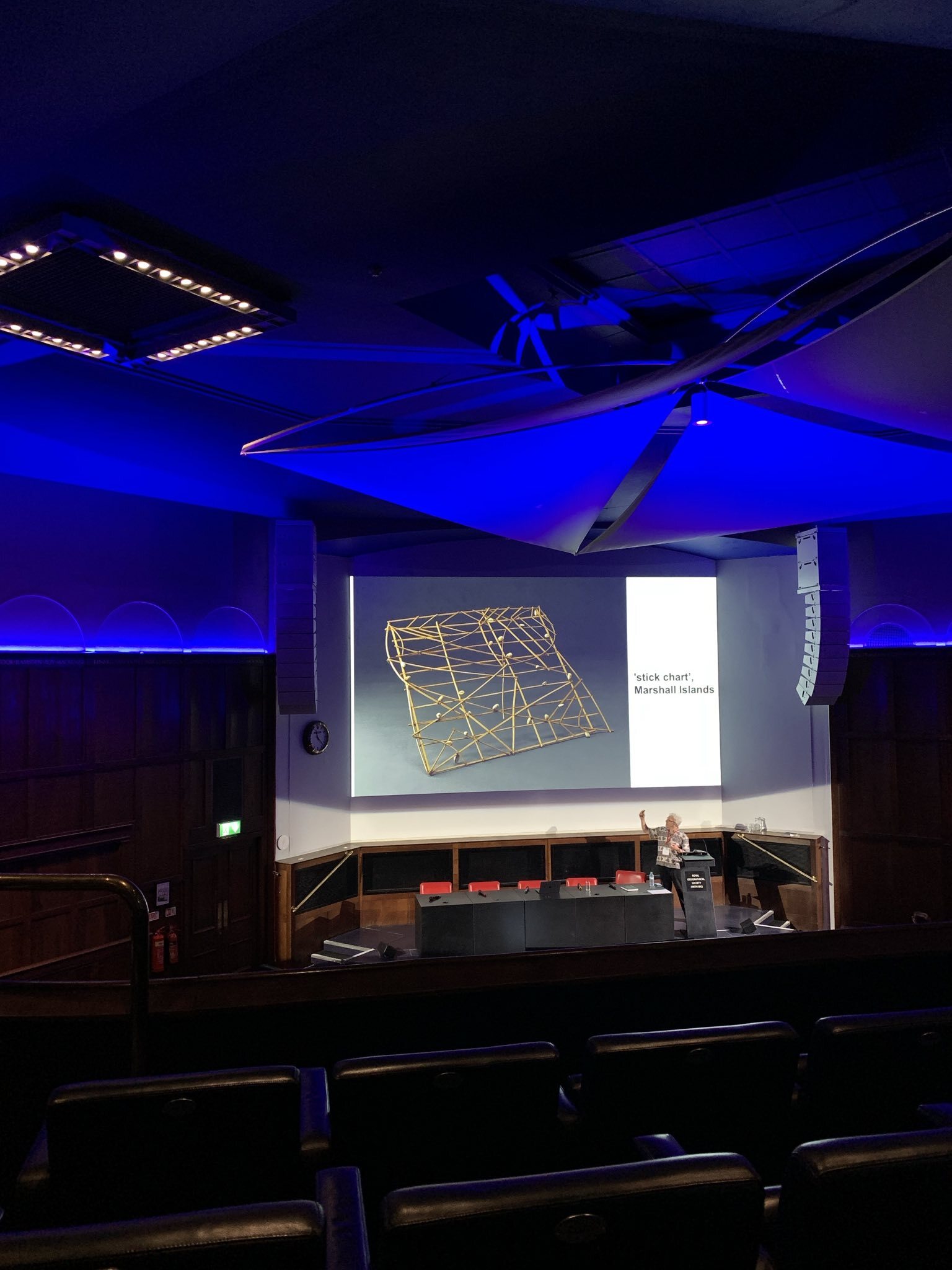
Geographer Alastair Bonnett presented his book "40 MAPS THAT WILL CHANGE HOW YOU SEE THE WORLD" reminding us of the incredible possibilities and limitations of mapping. In the slide above, Bonnet presented a map made and used by seafarers in the Marshall Islands (objected displayed collected by British Museum in 19th century).

The coordinating editors behind the ReROOT integration toolkit Luce Beeckmans (KU Leuven), Dounia Salamé (KU Leuven) and Martina Bovo (Politecnico di Milano) gave a presentation titled "Integration Otherwise Inspiration Kit. Reflecting on sharing knowledge on arrival infrastructures to a broad audience within the ReROOT project". This was part of a larger panel on mapping and sharing knowledge on social infrastructure convened by Patricia Aelbrecht (Cardiff University), Ceren Sezer (RWTH Aachen University), Karen Dekker (Royal Melbourne Institute of Technology), and Karina Landman (University of Pretoria).
The panel was hosted in the Lowther Room of the Royal Geographical Society, which gets its name from the building's original owner William Lowther. The room, walled with books enclosed in gold cages posed the perfect backdrop for our discussion on how to make knowledge accessible beyond academia.
The panel was hosted in the Lowther Room of the Royal Geographical Society, which gets its name from the building's original owner William Lowther. The room, walled with books enclosed in gold cages posed the perfect backdrop for our discussion on how to make knowledge accessible beyond academia.
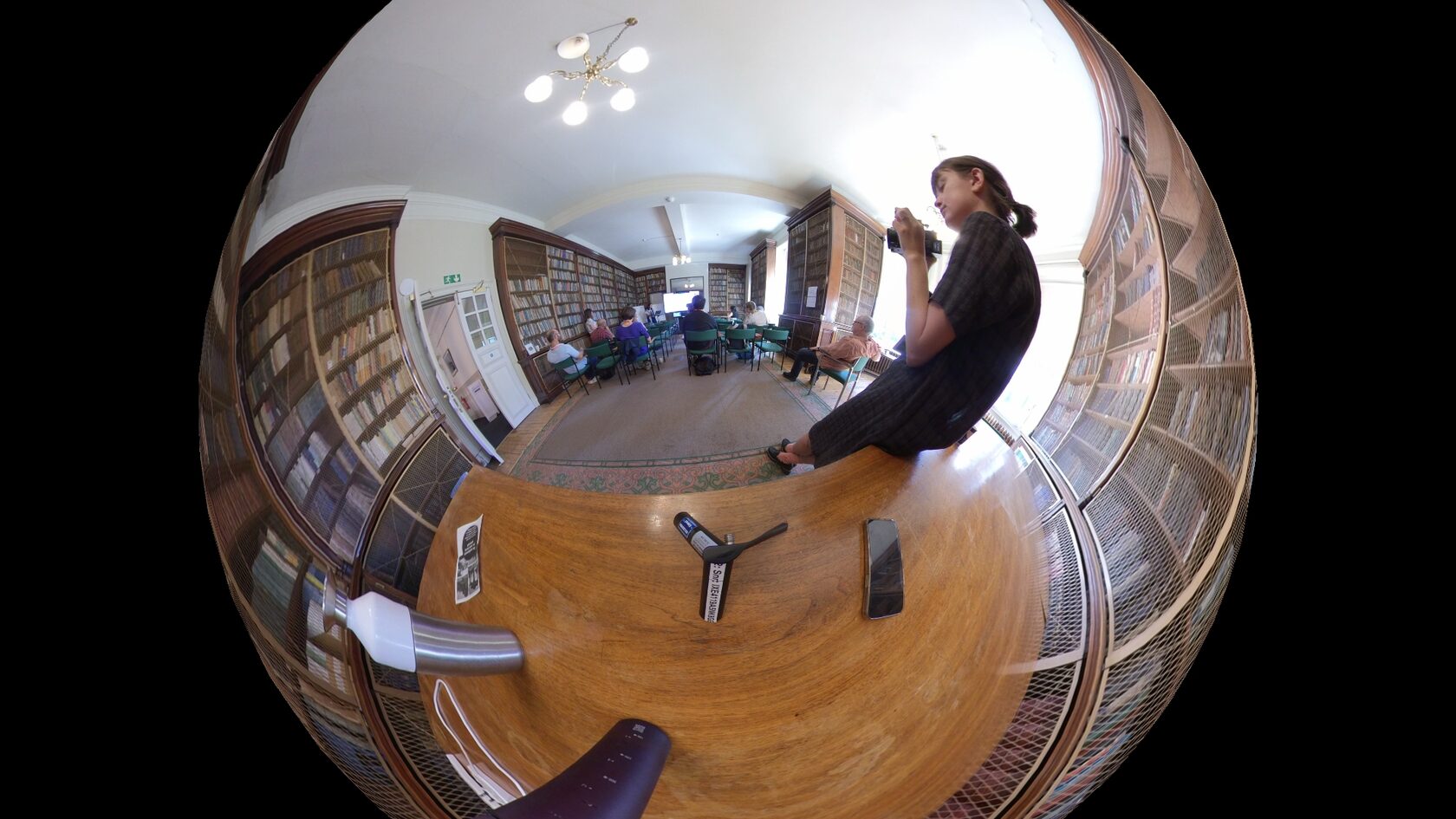
Presentation highlights
The presentation delved into the co-production of the Integration Otherwise Inspiration Kit within the H2020 ReROOT-project. This kit is designed for local policy-makers and civil society organizations, aiming to bridge the gap between academic research and societal impact.

Foto by Aliki Tzouvara.
Understanding Arrival Infrastructures
The ReROOT project focuses on arrival infrastructures—the elements of urban environments that newcomers interact with upon arrival. This concept is part of a broader discussion on social infrastructures within migration research. Our project spans nine sites across Europe, including the UK and Turkey, where we conducted ethnographic (action) research to study various instances of arrival infrastructuring work. This work involves a mix of formal, informal, and non-formal actors who facilitate the integration of newcomers, often facing contradictions and ambiguities.
The Co-Production Process
After completing the initial phase of fieldwork, the toolkit team embarked on creating the Integration Otherwise Inspiration Kit. This kit is a collaborative effort between field researchers and local actors, aiming to illuminate and provide tools for understanding and engaging in infrastructuring work. The co-production process was crucial in making the kit relevant and accessible to a broad audience.
Components of the Kit
The kit comprises two main parts:
- Seeing Integration Otherwise: This section highlights different types of infrastructuring work observed in the field and offers tools to identify these practices in other contexts.
- Doing Integration Otherwise: This part guides users on how to activate and implement infrastructuring practices in their own environments.
Lessons Learned and Methodological Approach
The presentation also reflected on the lessons learned from the co-production process and the methodologies we adopted. The kit’s development involved two key translation efforts:
- Generalizing Advice and Tools: We distilled general, yet context-specific, advice and tools from our ethnographic research.
- Making Knowledge Accessible: We ensured that this knowledge is accessible and usable for non-academic audiences.
The Importance of Translation in Academic Work
Through this experience, the toolkit team argues that translating academic work on arrival infrastructures is essential for creating real-world impact. By making research findings accessible and actionable, we can better support the integration of newcomers and enhance the effectiveness of local policy-makers and civil society organizations.
The Integration Otherwise Inspiration Kit is a testament to the potential of co-production and the importance of bridging the gap between academic research and practical application. We hope it serves as a valuable resource for those working to support and integrate newcomers in their communities.
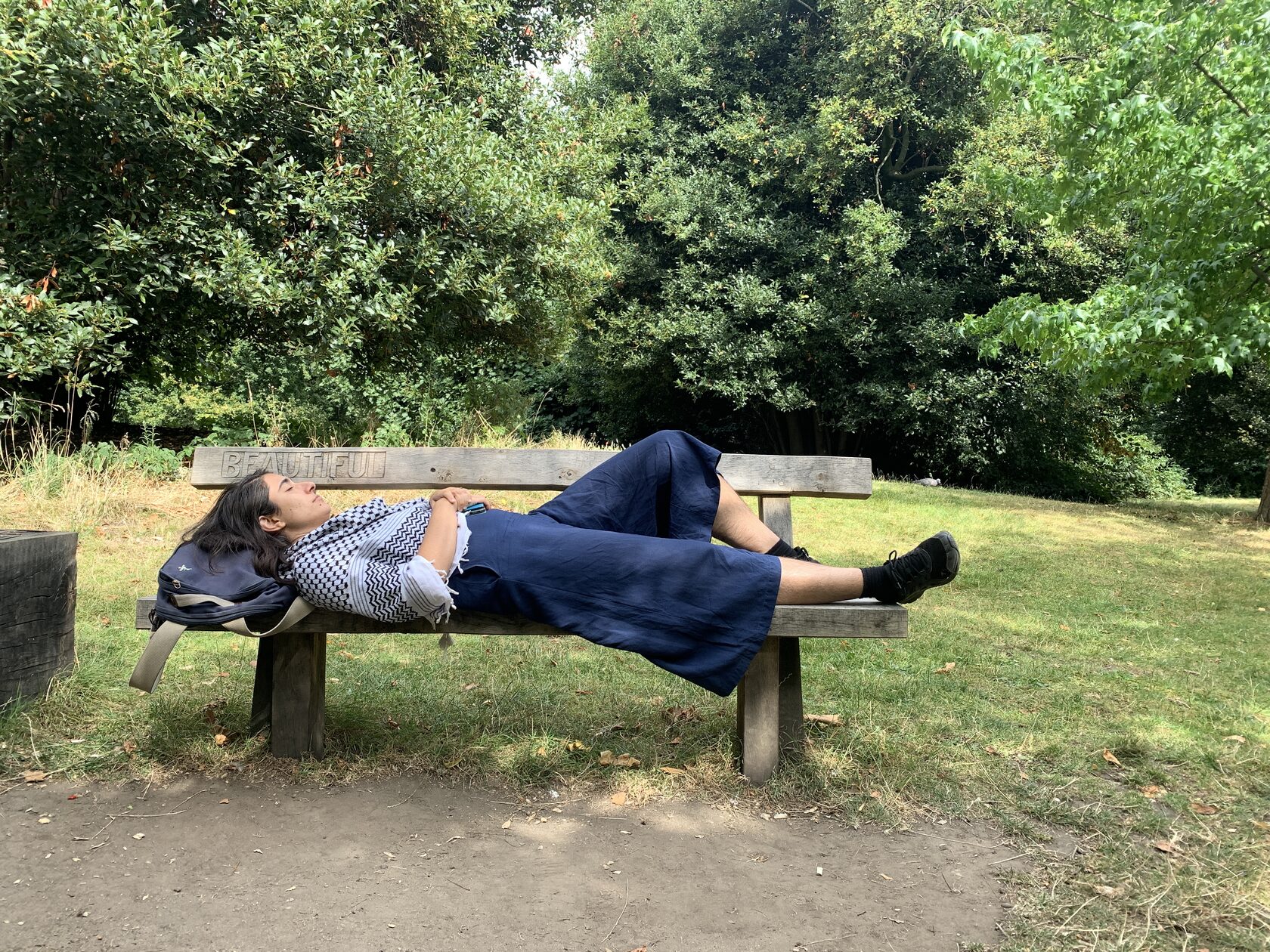
After a quick break, we journeyed to the Royal School of Mines to hear researcher Haris Tsavdaroglou talk about his participatory mapping research in Thessaloniki. He talked about the experience of using mental and counter-mapping with people on the move to co-produce knowledge about moving around in Thessaloniki as someone with a precarious status. You can read more about his research for ReROOT here.
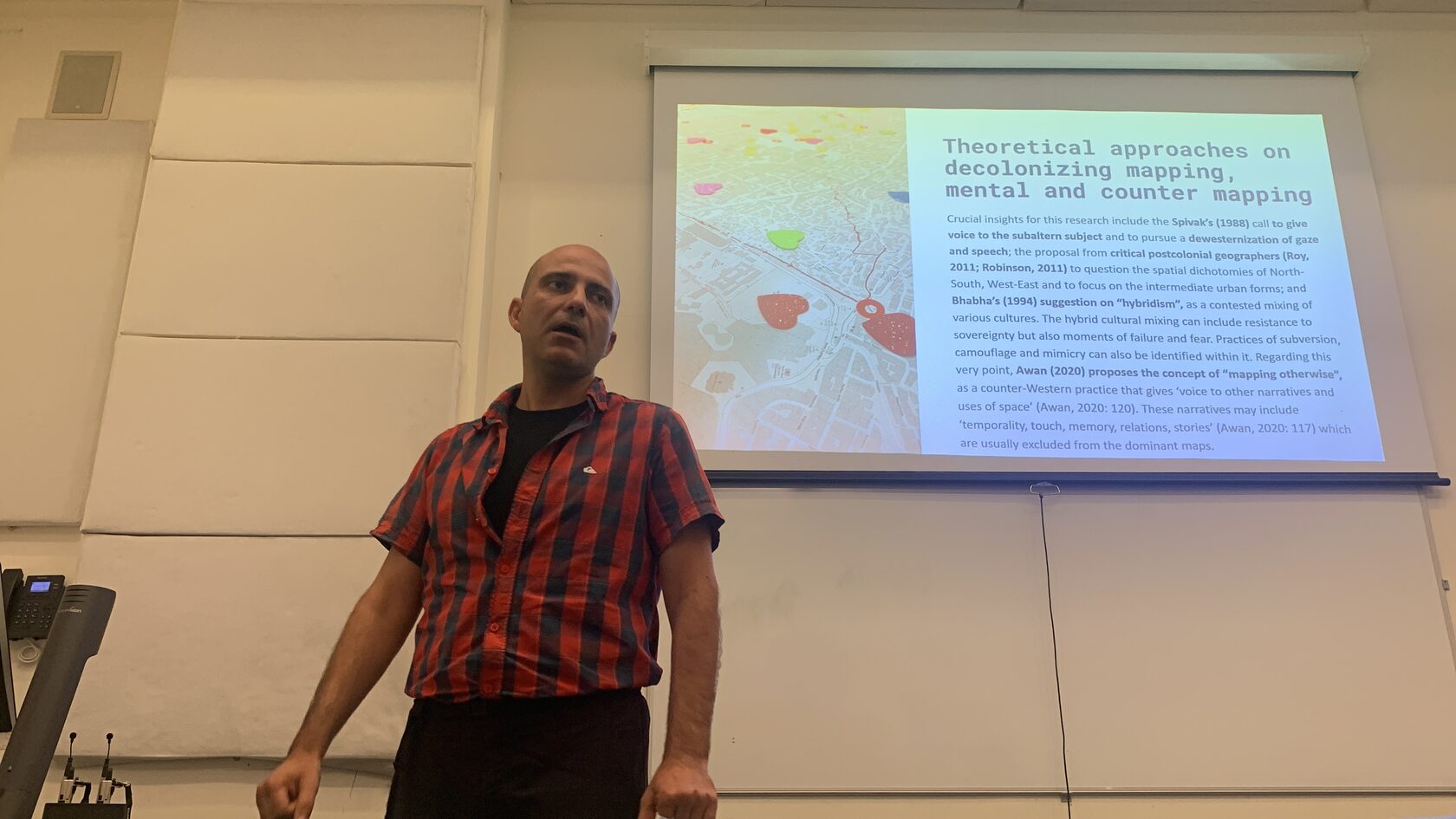
Also on this panel, Martina presented her doctoral research which focused on mapping "landing spaces" in Palermo. This research focused on using experience-based knowledge to understand arrival processes and urban transformation.
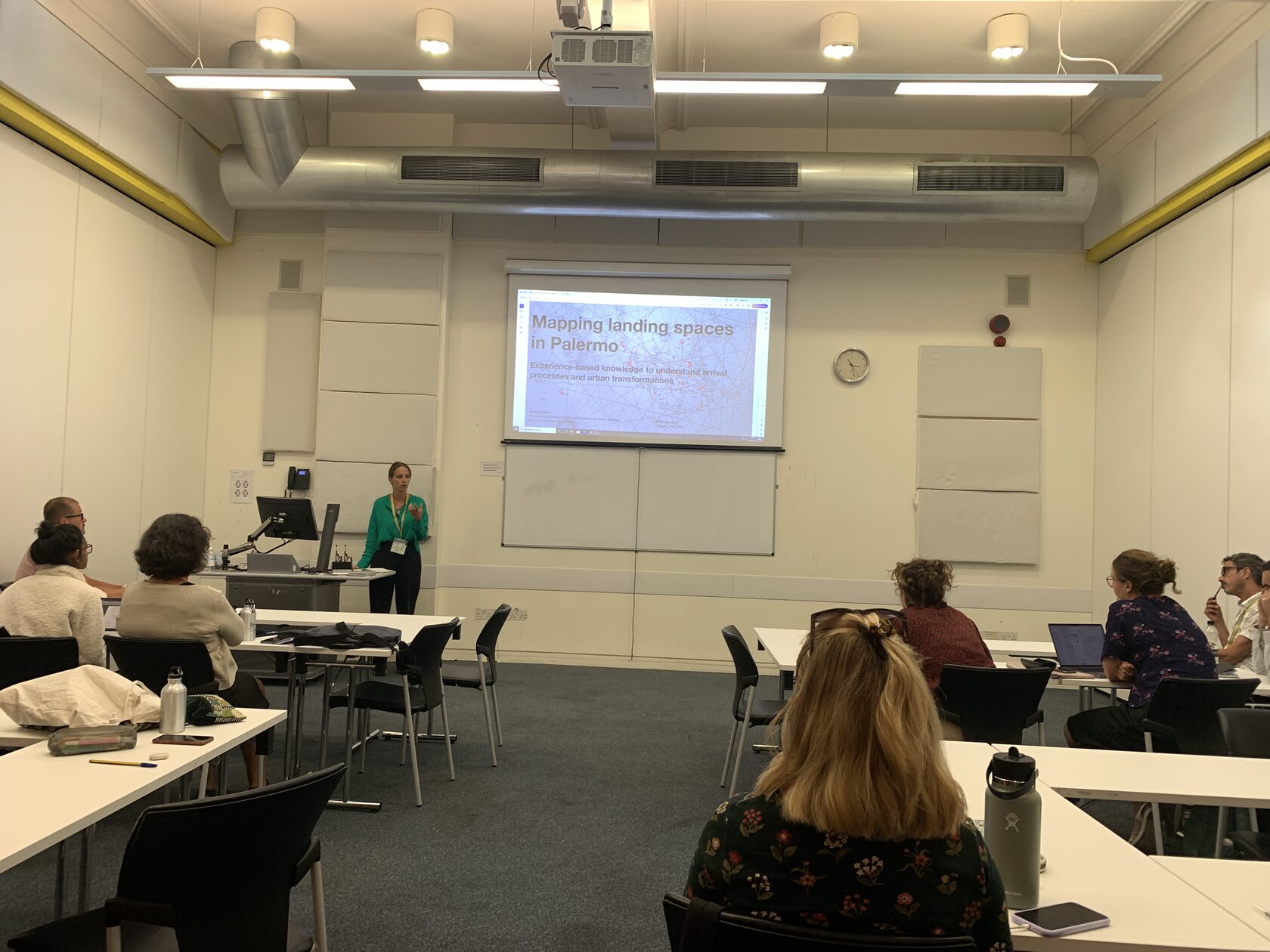
On the last day, we were lucky to catch ReROOT sister project "ATLAS: Access To housing and sociaL infrAStructure for people with precarious residence status in Brussels" presented by Luce Beeckmans and Aliki Tzouvara (KU Leuven). They shared inspiring first insights on scenario building.
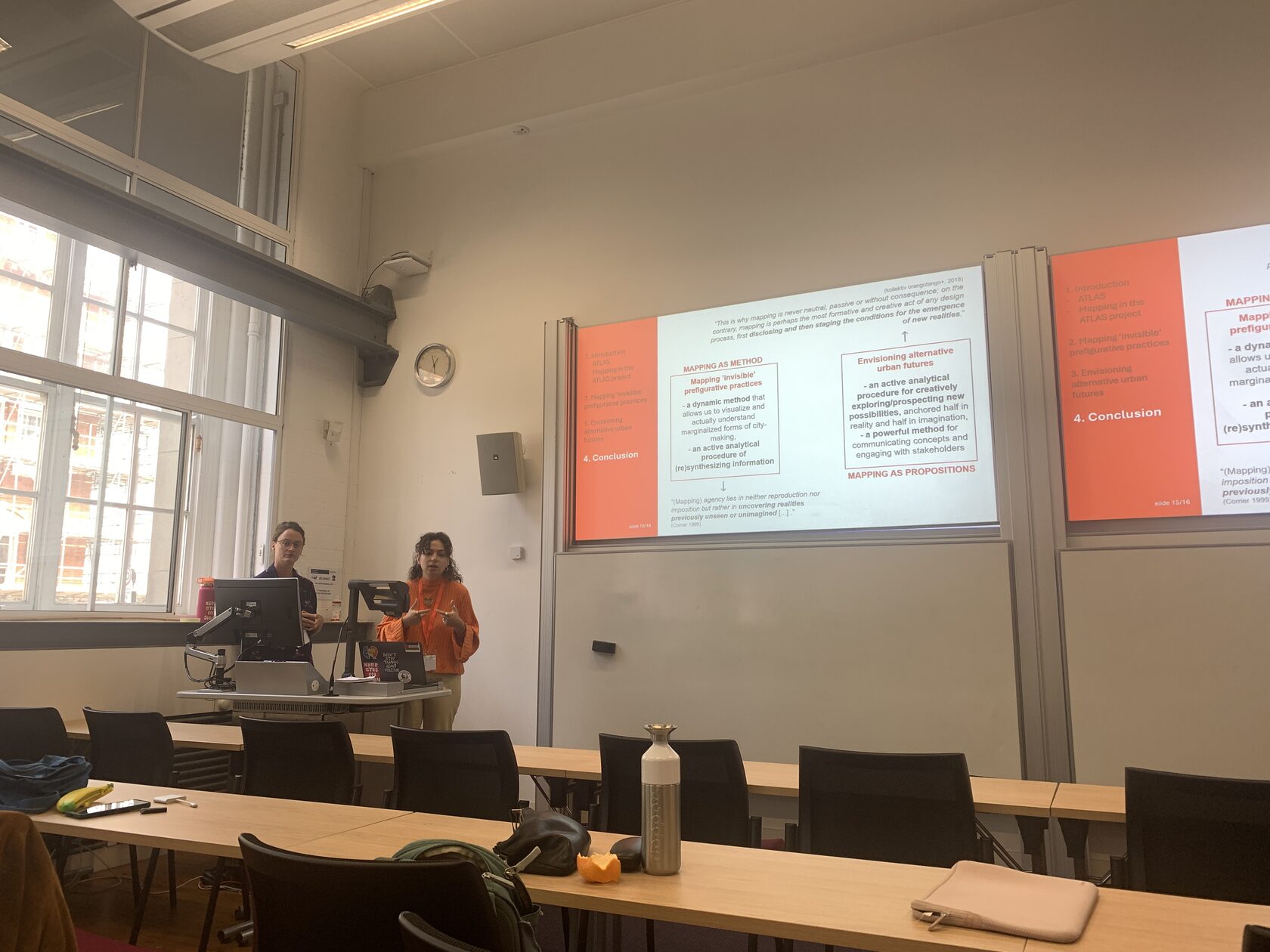
The first public presentation of the toolkit in process was a success. We will continue to gather feedback from non-academic public in order to reach our goal of creating tailored, tested, and co-produced knowledge on arrival infrastructure. Follow here for updates on the toolkit!

ReROOTers Haris, Dounia, Martina, Mary and Luce at the RGS reception. Foto by Luce.



